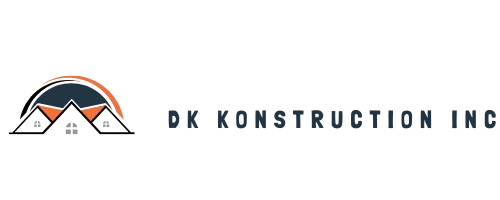A site surveyor plays a critical role in the realms of construction, real estate, and land development. Their primary function is to provide precise measurements and assessments of land and property, ensuring that any construction project is executed within legal boundaries and adheres to regulations. Understanding what a site surveyor does and the value they bring to various projects can significantly impact both construction outcomes and property investments.
Understanding the Role of a Site Surveyor
The role of a site surveyor encompasses a variety of responsibilities that are essential for the success of any construction project. They utilise specialised tools and techniques to measure, map, and evaluate land properties, providing valuable data for architects, builders, and developers.
The Essential Duties of a Site Surveyor
The duties of a site surveyor are diverse and comprehensive. Firstly, they are responsible for conducting land surveys to establish boundaries, easements, and encroachments. This is vital for avoiding disputes with neighbouring properties.
Additionally, site surveyors produce detailed reports and maps that inform the planning and design phases of a project. They may also oversee the positioning of structures during construction to ensure compliance with plans and guidelines. Furthermore, site surveyors often collaborate closely with environmental consultants to assess the impact of construction on the surrounding landscape, ensuring that projects adhere to environmental regulations and sustainability practices. This aspect of their role has become increasingly significant in recent years, as the construction industry places greater emphasis on minimising ecological footprints and promoting green building initiatives.
The Skills and Qualifications of a Site Surveyor
A successful site surveyor typically holds a degree in surveying, civil engineering, or a related field. They must be conversant with advanced surveying equipment, such as GPS systems and laser scanners, as well as traditional measuring tools.
Beyond technical skills, site surveyors also require strong analytical abilities and attention to detail. Proficiency in software that processes geographic information and drafting plans is also essential for modern surveying practices. Additionally, effective communication skills are crucial, as site surveyors often liaise with various stakeholders, including clients, contractors, and local authorities. The ability to convey complex technical information in a clear and concise manner can significantly enhance collaboration and project efficiency. Moreover, as technology continues to evolve, site surveyors must remain adaptable and committed to ongoing professional development, ensuring they stay abreast of the latest advancements in surveying techniques and tools.
The Importance of Site Surveyors in Construction
Site surveyors are integral to the construction process, often acting as the backbone of the planning and execution phases. Their input not only ensures compliance with regulations but also facilitates efficiency and safety on the work site.
Ensuring Compliance with Building Regulations
Building regulations dictate extensive requirements for construction projects, encompassing safety, sustainability, and zoning laws. Site surveyors ensure that these standards are met during the planning and construction stages by providing precise measurements and essential documentation.
By identifying any potential issues before they escalate, site surveyors mitigate risks that could lead to costly delays or legal challenges. Their reports provide essential guidance to all stakeholders involved in a project.
Furthermore, site surveyors are well-versed in local regulations and standards, which can vary significantly from one region to another. This local expertise allows them to navigate the complexities of different jurisdictions, ensuring that all necessary permits are obtained and that the project adheres to specific community guidelines. Their role often extends beyond mere compliance; they also serve as a liaison between the construction team and local authorities, fostering communication and collaboration that is crucial for the smooth progression of a project.
Mitigating Potential Construction Risks
Construction projects inherently carry risks, from unexpected land conditions to compliance issues. Site surveyors contribute significantly to risk management by identifying potential land-related challenges before construction begins.
They conduct thorough site investigations, looking for factors such as soil stability, water drainage patterns, and other environmental considerations. By addressing these elements early on, surveyors help reduce the likelihood of encountering problems during construction.
In addition to these preliminary assessments, site surveyors also play a vital role in the ongoing monitoring of construction sites. As the project progresses, they are responsible for verifying that the construction aligns with the original plans and specifications. This continuous oversight helps to catch any deviations early, allowing for timely adjustments that can prevent more significant issues down the line. Their expertise in using advanced technology, such as GPS and 3D modelling, further enhances their ability to provide accurate and up-to-date information, ensuring that every aspect of the project is executed with precision.

The Role of a Site Surveyor in Property Purchase
For those looking to purchase property, a site surveyor’s expertise is invaluable. Their assessments can reveal hidden issues that may not be immediately apparent, affecting the overall value and usability of the property.
Identifying Potential Property Issues
Site surveyors can uncover a range of potential issues that buyers might overlook, including boundary disputes or encroachments from neighbouring properties. They also evaluate easements, which are legal rights for others to use a portion of the property for a specific purpose.
By uncovering these issues before purchase, site surveyors provide buyers with crucial information that can influence their decision-making process and negotiation strategies. Furthermore, they often assess the topography of the land, which can reveal drainage problems or other environmental concerns that could impact future use. For instance, a site that is prone to flooding may require expensive mitigation measures, thus significantly altering the buyer’s financial calculations and long-term plans.
Assisting in Property Valuation
Accurate property valuation is fundamental for making informed investment decisions. Site surveyors contribute to this process by providing detailed assessments and reports on the property’s characteristics and conditions.
With their technical knowledge and industry insights, site surveyors can identify aspects of the property that might affect its market value, such as location advantages, structural integrity, and potential development opportunities. They also take into account local market trends and zoning regulations, which can play a critical role in determining the future value of the property. For instance, if a site is located in an area earmarked for future development, a surveyor can help buyers understand how this may enhance the property’s value over time, making it a more attractive investment. Additionally, their expertise can assist in identifying any necessary repairs or renovations that could further increase the property’s market appeal, ensuring that buyers are fully informed before making a significant financial commitment. Want to get about reliable register surveyors in your area visit https://dkkonstructioninc.com/a-guide-to-finding-reliable-registered-surveyors-in-your-area/
How to Choose the Right Site Surveyor
Choosing the right site surveyor for your project is crucial for ensuring success and avoiding pitfalls. With many options available, it is essential to make an informed decision based on specific criteria.
Key Considerations When Hiring a Site Surveyor
When selecting a site surveyor, one should consider their qualifications, experience, and area of expertise. Verify that they are registered with a recognised professional body, such as the Royal Institution of Chartered Surveyors (RICS).
Additionally, look into their past projects and client reviews to gauge their reliability and efficiency. Understanding their methods and technologies can also provide insights into their overall capability and fit for your project. It is also beneficial to assess their familiarity with local regulations and planning requirements, as this knowledge can significantly influence the survey’s accuracy and compliance with legal standards. A surveyor with a deep understanding of the local landscape can often foresee potential challenges that may arise during the project.
Questions to Ask Your Potential Site Surveyor
Before finalising your decision, ask potential site surveyors specific questions that pertain to your project. Inquire about their experience with similar projects, methodologies, and the timeline you can expect for completing the survey.
It is also advisable to discuss their fee structure and whether they provide detailed reports and ongoing support after the survey is completed. Clear communication regarding expectations and deliverables can prevent misunderstandings later in the process. Furthermore, consider asking about their approach to risk management and how they handle unexpected issues that may arise during the surveying process. A proactive site surveyor will have strategies in place to mitigate risks, ensuring that your project remains on track and within budget. Engaging in a thorough dialogue about these aspects can help you identify a surveyor who not only meets your technical needs but also aligns with your project’s overall vision and objectives.
The Cost of Hiring a Site Surveyor
The cost involved in hiring a site surveyor can vary widely based on a range of factors. Understanding these elements can help clients prepare their budgets and expectations accordingly.
Factors Affecting the Cost of Site Surveying
Several factors influence the cost of site surveying, including the property size, location, and complexity of the survey required. Larger properties or those requiring detailed assessments tend to be more expensive than smaller or simpler sites.
Additionally, the experience and reputation of the surveyor can also affect their rates. A seasoned professional with a proven track record may command higher fees but can provide greater assurance of quality and accuracy.

Understanding the Site Surveyor’s Fee Structure
Site surveyors may charge in various ways, including hourly rates, flat fees, or fees based on the project’s complexity. It is essential to have a detailed discussion regarding the fee structure before engaging the surveyor’s services.
Moreover, clarified expectations about what is included in the fee—such as the delivery of surveys, reports, and potential revisions—can help avoid unexpected costs down the line.
It is also worth noting that additional costs may arise depending on the specific requirements of the project. For instance, if a survey requires advanced technology such as 3D scanning or drone surveying, these specialised services can significantly increase the overall cost. Furthermore, if the surveyor encounters unexpected challenges, such as difficult terrain or the need for further investigation, this may lead to additional charges. Therefore, it is prudent for clients to discuss potential contingencies with their surveyor to ensure comprehensive budgeting.
Furthermore, the geographical location of the property can play a crucial role in determining the cost. In urban areas where demand for surveying services is high, fees may be inflated compared to rural regions, where competition may drive prices down. Understanding the local market rates can empower clients to negotiate better terms and ensure they are receiving a fair price for the services rendered. Engaging in thorough research and obtaining multiple quotes can provide valuable insights into the prevailing costs in the area.
In conclusion, site surveyors are indispensable to both construction projects and property purchases. By understanding their role, importance, and the considerations for hiring one, you can make informed decisions that lead to successful outcomes.

